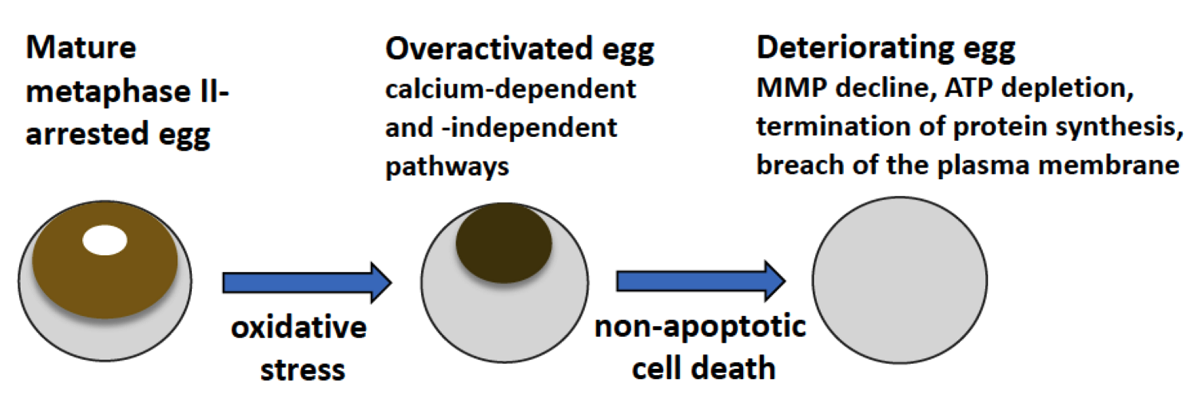Excessive activation of frog eggs (overactivation) is a pathological process that renders eggs unfertilizable. Its physiological inducers are unknown. Previously, oxidative stress was shown to cause time- and dose-dependent overactivation of Xenopus laevis frog eggs [1]. Here, we demonstrate that the oxidative stress-induced egg overactivation is a calcium-dependent phe-nomenon which can be attenuated in the presence of the selective calcium chelator BAPTA. Degradation of cyclin B2, which is known to be initiated by calcium transient in fertilized or parthenogenetically activated eggs, can also be observed in the overactivated eggs. Decline in mitochondrial membrane potential, ATP depletion and termination of protein synthesis manifest in the eggs within one hour of triggering overactivation. These intracellular events occur in the absence of caspase activation. Furthermore, plasma membrane integrity is compromised in the overactivated eggs, as evidenced by ATP leakage and egg swelling. In sum, our data demonstrate that oxidative stress-induced overactivation of frog eggs causes fast and dramatic disruption of cellular homeostasis, resulting in robust and expedited cell death by a calcium-dependent non-apoptotic mechanism.

